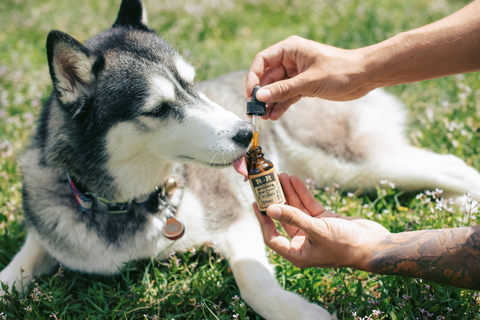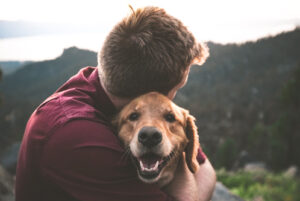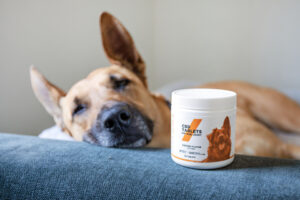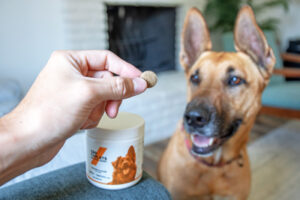Rabies is a deadly disease that affects both humans and animals. It is caused by a virus that attacks the central nervous system, leading to brain inflammation and ultimately death. One of the most effective ways to prevent rabies in pets is through vaccination. By vaccinating your dog or cat against rabies, you are not only protecting them from this serious disease but also ensuring the safety of your family and community. In this blog post, we will explore the importance of rabies vaccination and provide compelling reasons why your pet needs to be vaccinated.

The importance of rabies prevention
Protecting your pet’s health
One of the primary reasons why your dog or cat needs a rabies vaccine is to protect their health. Rabies is a highly contagious disease that can be transmitted through bites or scratches from infected animals. If your pet comes into contact with a rabid animal, they are at risk of contracting the virus.
By vaccinating your pet, you can significantly reduce their chances of developing rabies. Vaccines help stimulate their immune system to create antibodies that fight against the virus. This not only protects your beloved pet but also ensures their longevity and overall well-being.
Moreover, getting your pet vaccinated ensures that they are protected against other potential health risks associated with rabies. By keeping them up to date with their vaccinations, you are taking proactive steps in safeguarding their health and providing them with a better quality of life.
In the next section, we will discuss how rabies vaccination plays a crucial role in preventing the spread of the disease to humans.

The risks of not vaccinating your pet
Preventing the spread of rabies to humans
Rabies is not only a threat to our beloved pets but also to humans. It is a zoonotic disease, meaning it can be transmitted from animals to humans. This is why it is crucial to ensure the rabies vaccination of your pets.
By vaccinating your dog or cat, you are not only protecting them from the deadly virus but also reducing the risk of its transmission to humans. Rabies can be transmitted to humans through bites, scratches, or even by touching an infected animal’s saliva.
Having your pet vaccinated helps create a barrier against the virus, preventing its spread to humans. This is particularly important if you have young children or elderly family members who are more susceptible to the disease.
In addition, vaccinating your pet contributes to the overall eradication of rabies. By ensuring a high vaccination rate in the pet population, we can break the cycle of transmission and ultimately eliminate this deadly disease.
In the next section, we will explore the ideal timing for rabies vaccination and address common concerns pet owners may have. Stay tuned!

Understanding the rabies virus
The ideal timing for rabies vaccination and addressing common concerns
Timing plays a crucial role when it comes to vaccinating your pet against rabies. According to veterinary guidelines, puppies and kittens should receive their first rabies vaccine between 12 and 16 weeks of age. This initial vaccine is often followed by a booster shot one year later to ensure maximum protection.
For adult pets, a rabies vaccine is typically administered once every one to three years, depending on the specific vaccine and local regulations. Your veterinarian can provide guidance on the appropriate timing and frequency of vaccinations for your pet.
Now, let’s address some common concerns pet owners may have about rabies vaccination. Some worry about the potential side effects of the vaccine. While it is true that vaccines can have occasional mild side effects, such as swelling at the injection site or slight fever, the benefits of vaccination far outweigh the risks.
In rare cases, more serious reactions can occur, but these are extremely rare and often outweighed by the risks of contracting rabies or spreading it to humans. Your veterinarian can discuss any concerns you may have and help alleviate any worries.
In the final section, we will discuss the cost of rabies vaccination and the importance of regular veterinary check-ups. Don’t miss it!

How a rabies vaccine works
The cost of rabies vaccination and the importance of regular veterinary check-ups
One concern that pet owners often have when it comes to vaccinating their pets is the cost. It’s true that veterinary care can be expensive, but the price of a rabies vaccination is a small price to pay when considering the potential consequences of not vaccinating.
The cost of a rabies vaccine can vary depending on factors such as location, veterinary clinic, and the specific vaccine used. However, in general, the cost of a rabies vaccination is relatively affordable compared to other veterinary procedures.
In addition to the cost of vaccination, regular veterinary check-ups are an essential part of keeping your pet healthy. During these check-ups, your veterinarian can assess your pet’s overall health, administer any necessary vaccinations, and address any concerns or issues you may have.
Regular veterinary check-ups also allow for early detection of any health problems, which can lead to more effective treatment and better outcomes for your pet. Remember, prevention is key when it comes to keeping your furry friend happy and healthy.
In conclusion, the rabies vaccine is a crucial preventive measure for dogs and cats. The timing and frequency of vaccination may vary depending on your pet’s age and local regulations. Despite potential mild side effects, the benefits of vaccination far outweigh the risks. The cost of rabies vaccination is relatively affordable, and regular veterinary check-ups are essential for maintaining your pet’s overall health. Don’t neglect these important aspects of responsible pet ownership!

The role of the veterinarian in administering the vaccine
The legal requirements for rabies vaccination
In addition to the health benefits and affordability of the rabies vaccine, it’s important to consider the legal requirements surrounding this vaccination for dogs and cats. Rabies is a highly dangerous and contagious disease that poses a risk to both animals and humans, making it a public health concern.
Many countries, states, and local municipalities have laws mandating the vaccination of pets against rabies. These laws are in place to protect the community and prevent the spread of the disease. Non-compliance with these laws can result in fines, quarantines, or even the seizure and euthanasia of your pet.
It’s vital to research and understand the specific regulations in your area regarding rabies vaccination for pets. By ensuring that your dog or cat is up to date on their rabies vaccine, you not only protect their health but also fulfill your legal responsibilities as a pet owner.
Don’t risk the safety and well-being of your beloved pet or the community they live in. Stay informed and proactive when it comes to rabies vaccination requirements. Remember, compliance with the law is an important part of being a responsible pet owner.
The role of the veterinarian in administering the vaccine
The legal requirements for rabies vaccination
In addition to the health benefits and affordability of the rabies vaccine, it’s important to consider the legal requirements surrounding this vaccination for dogs and cats. Rabies is a highly dangerous and contagious disease that poses a risk to both animals and humans, making it a public health concern.
Many countries, states, and local municipalities have laws mandating the vaccination of pets against rabies. These laws are in place to protect the community and prevent the spread of the disease. Non-compliance with these laws can result in fines, quarantines, or even the seizure and euthanasia of your pet.
It’s vital to research and understand the specific regulations in your area regarding rabies vaccination for pets. By ensuring that your dog or cat is up to date on their rabies vaccine, you not only protect their health but also fulfill your legal responsibilities as a pet owner.
Don’t risk the safety and well-being of your beloved pet or the community they live in. Stay informed and proactive when it comes to rabies vaccination requirements. Remember, compliance with the law is an important part of being a responsible pet owner.

Ensuring the safety of your pet and others
The potential consequences of not vaccinating against rabies
While the legal requirements for rabies vaccination may seem stringent, it’s crucial to understand the potential consequences of not vaccinating your dog or cat against this deadly disease.
Rabies is a virus that attacks the nervous system and is transmitted through saliva, typically through bites from infected animals. Once symptoms appear, there is no cure and the disease is almost always fatal.
Without the protection of a rabies vaccine, your pet is at risk of contracting the disease from wildlife or other unvaccinated animals. This not only puts their life in danger but also jeopardizes the health and safety of your family and the wider community.
In the unfortunate event that an unvaccinated animal bites a human, there can be severe legal ramifications. The potential for legal action, medical expenses, and emotional distress can be avoided by ensuring your pet is properly vaccinated.
Protecting your furry friend against rabies is not only a necessary legal requirement but also a responsible decision that safeguards their health and the well-being of others. Don’t take the risk – schedule an appointment with your veterinarian and ensure your pet’s rabies vaccine is up to date.

Protecting your beloved pet with a rabies vaccine
Regular booster shots and vaccination schedules
Once your pet has received their initial rabies vaccination, it’s important to stay up to date with their booster shots and follow the recommended vaccination schedule. Rabies vaccines are typically administered every one to three years, depending on the type of vaccine used and local regulations.
Regular booster shots are necessary to ensure your pet’s continued immunity against the rabies virus. Over time, the effectiveness of the vaccine may decrease, leaving your pet vulnerable to infection.
Your veterinarian will typically provide you with a reminder for when your pet’s next rabies vaccination is due. It’s important to schedule an appointment promptly to ensure your pet remains protected against this deadly disease.
By keeping your pet’s rabies vaccinations up to date, you are not only complying with legal requirements but also maintaining their overall health and safety. Vaccines are a crucial part of responsible pet ownership and play a vital role in preventing the spread of rabies. Make sure you prioritize your pet’s well-being by staying on top of their vaccination schedule.

Great content there.